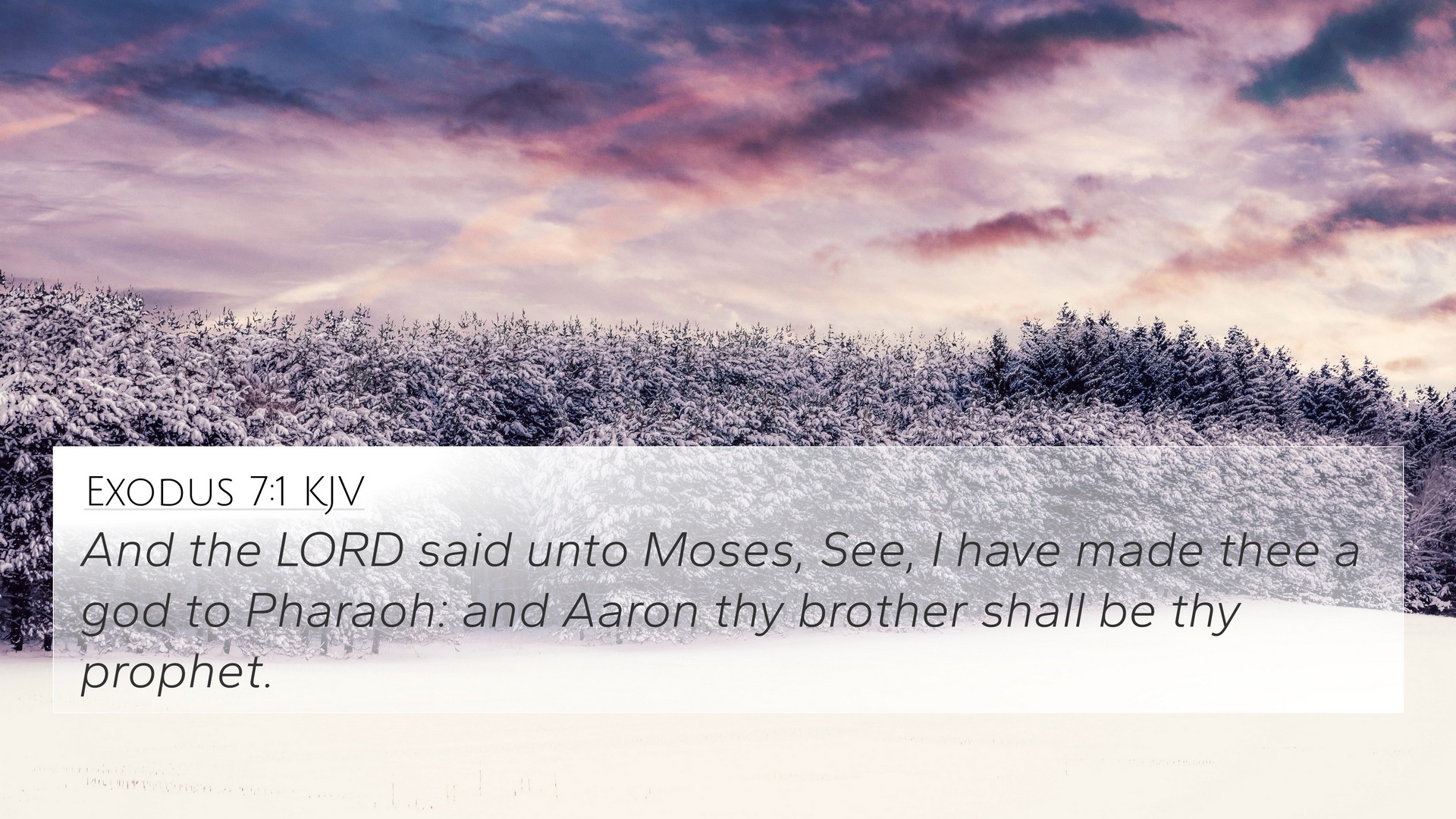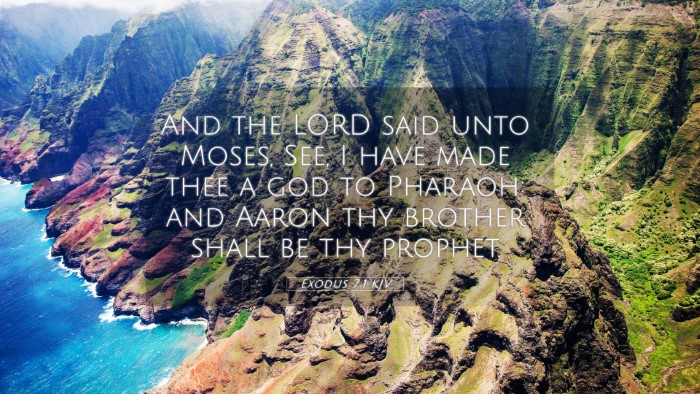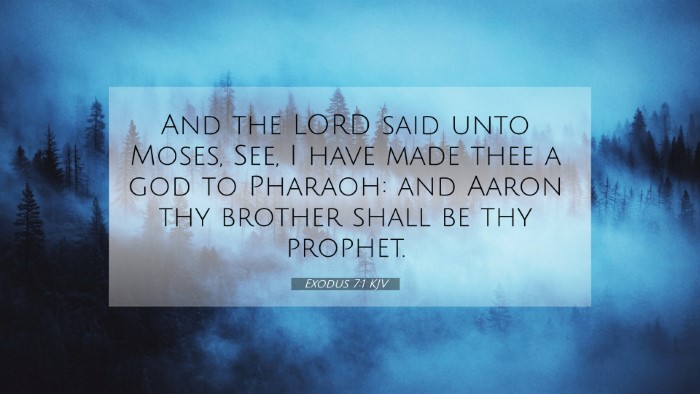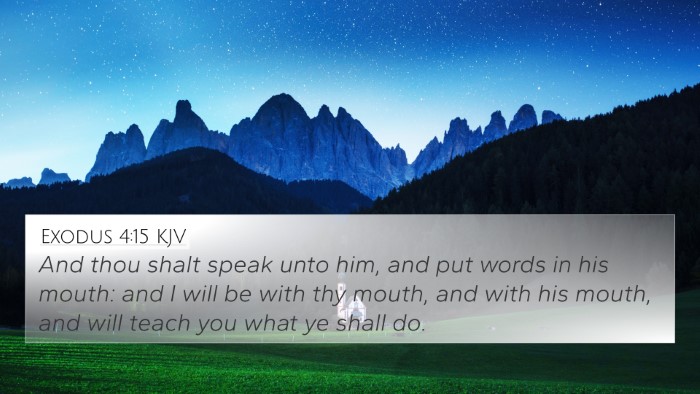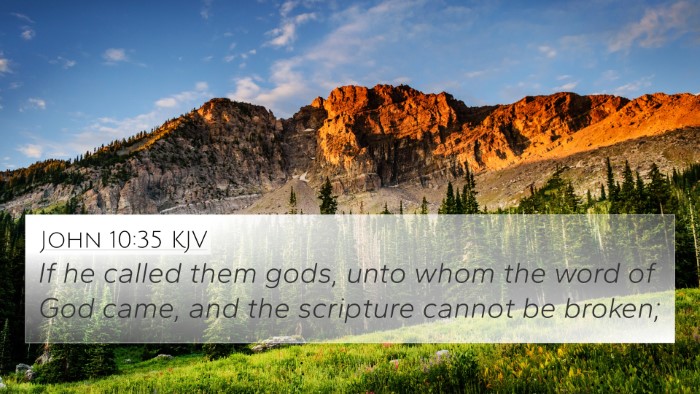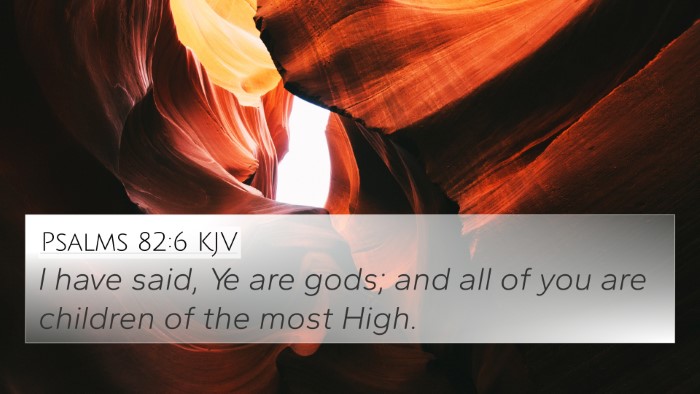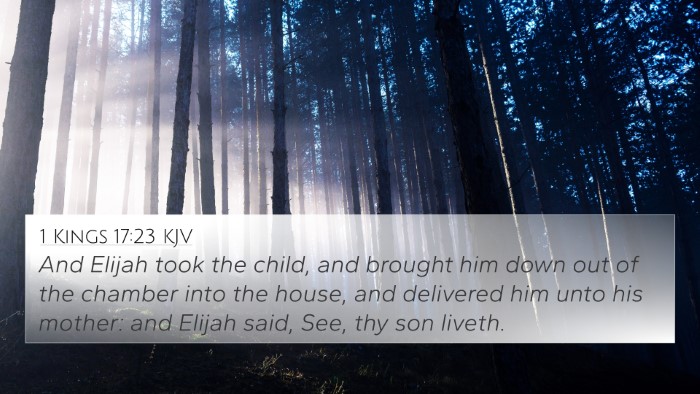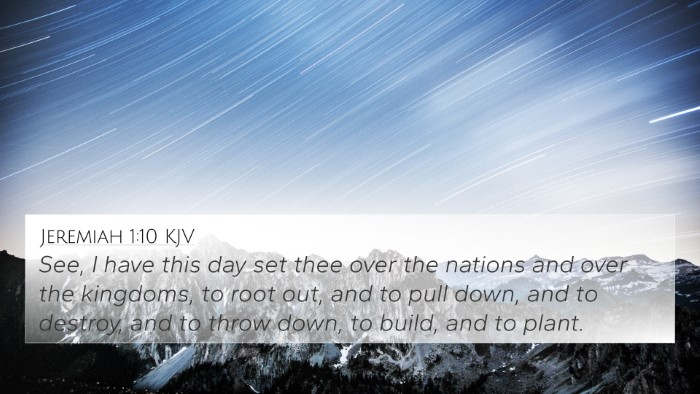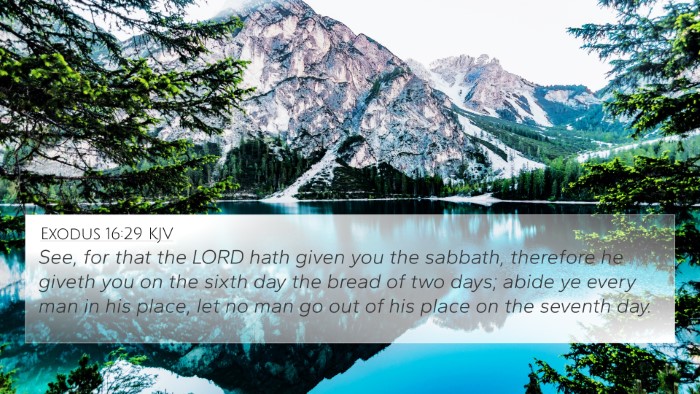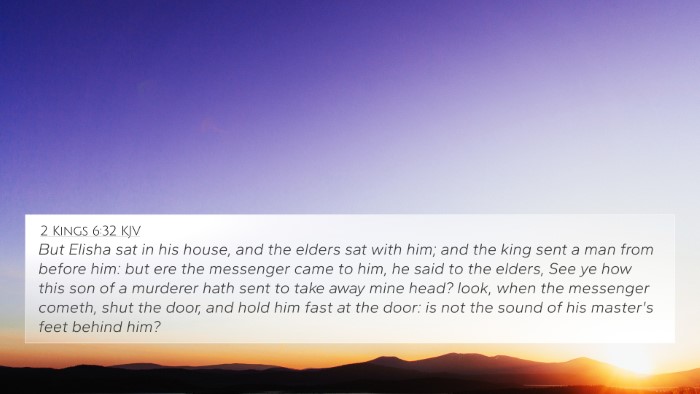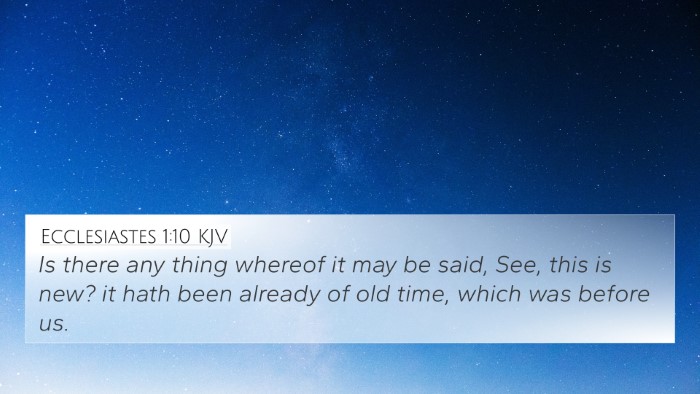Summary and Interpretation
This verse is crucial in understanding the dynamics of God's authority and the role assigned to Moses and Aaron. In the context of the Exodus narrative, Moses is appointed by God to confront Pharaoh, the ruler of Egypt, who represents oppression and idolatry.
-
Moses as a "god" to Pharaoh:
This designation implies that Moses will possess authority over Pharaoh, not in a literal sense but as God's chosen instrument. As Matthew Henry notes, this establishes Moses as a mediator between God and Pharaoh, similar to how a deity would communicate divine will to a mortal ruler.
-
Aaron as Prophet:
Aaron, Moses' brother, is described as a prophet, highlighting the partnership in fulfilling God's mission. Albert Barnes emphasizes that this team demonstrates the importance of collaboration in God's work, where Moses provides direction while Aaron communicates the message.
Biblical Context
In the larger narrative, this verse precedes the 10 plagues, which serve as signs of God’s power in contrast to Egypt’s false gods. Adam Clarke points out that this demonstrates God's ultimate sovereignty, showing that the Lord of Israel is sovereign over all nations, including the most powerful empire of the time.
Cross-Referencing Biblical Texts
This verse connects with several other scriptures which highlight themes of divine authority and prophetic leadership:
- Exodus 4:16: Where Aaron is appointed to assist Moses.
- Exodus 3:10: God's commission to Moses to lead His people out of Egypt.
- 2 Corinthians 5:20: Believers as ambassadors for Christ, reflecting the prophetic role.
- Acts 7:35-36: Stephen refers to Moses as a deliverer sent by God.
- Romans 13:1: The concept of governing authorities being instituted by God, paralleling Moses' authority.
- Hebrews 3:5: Moses being faithful as a servant in the house of God.
- Isaiah 43:10: God declaring Israel as His witnesses, connecting to Moses' role.
Thematic Bible Verse Connections
Exodus 7:1 illustrates significant themes such as:
- God's Sovereignty: Revealing His control over human rulers.
- Leadership: The call to be a leader in faith, paralleling modern applications.
- Prophetic Ministry: The role of speaking on God's behalf, which continues throughout scripture.
- Deliverance: God's plan to liberate His people, a motif that resonates through the entire narrative of Exodus.
Practical Applications
For today’s believer, Exodus 7:1 serves as a reminder of our call to be instruments of God's purpose. Much like Moses and Aaron, we are employed in God's work, and our relationship with Him empowers us to act boldly in the world. Understanding this can be enhanced through:
- Bible Concordance: Utilize tools to find related verses for in-depth study.
- Bible Cross-reference Guide: Employ this to connect themes and narratives across scripture.
- Cross-reference Bible Study: Engage in methods of exploring how various scriptures speak to one another.
Conclusion
Exodus 7:1 is a profound declaration of God's strategy in the battle against oppression, highlighting the roles of chosen leaders in this divine mission. By studying this verse alongside cross-referenced texts, believers can gain a holistic understanding of scripture and its themes of deliverance, prophecy, and divine authority.
Related Cross-Referenced Themes
In studying Exodus 7:1 and its connections, here are some broader themes to consider:
- How God empowers leaders in both the Old and New Testaments.
- The continuity of God’s promises across biblical narratives.
- The function of prophets and their messages in challenging prevailing authorities.
